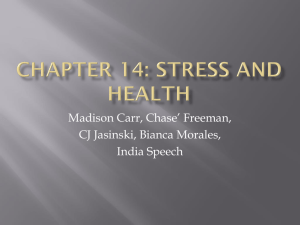Coping with and Managing Stress- Objectives:
advertisement
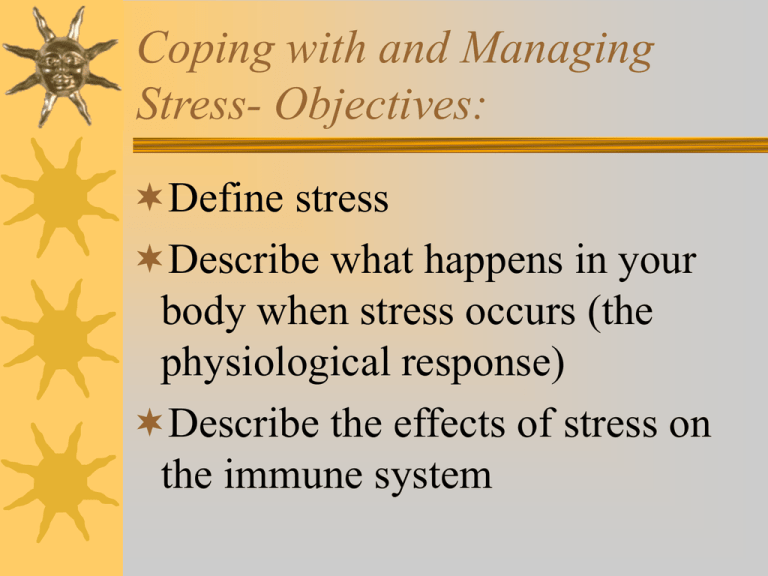
Coping with and Managing Stress- Objectives: Define stress Describe what happens in your body when stress occurs (the physiological response) Describe the effects of stress on the immune system Objectives continued: Describe how stress affects the nutritional status. Describe how to manage stress Describe behaviors or habits that unnecessarily rob you of time. Describe at least two time management tools Definition of stress: It is a mismatch between the demands in our lives and the resources we have to deal with those demands. This mismatch is often caused by changes, either large or small. Stress is not an event (not a person, place or thing) it is your reaction to that event. Stress can be good: It is a force that can generate and initiate action, therefore it is a motivating force. Eustress Gives humans an ability to respond to challenges or dangers. It is vital for self-protection The stress response is characterized by: Muscle tension Acute anxiety Increased heart rate Hypertension Shallow breathing Giddiness joy General Adaptation Syndrome (GAS): A series of changes that the body undergoes whether a stress is perceived as positive or negative. First phase is Alarm, homeostasis is disrupted, known also as the “Fight or Flight” response syndrome. Adrenaline and other chemicals are pumped into the blood stream. . GAS continued: The emotional response stimulates a physical reaction associated with stress, such as: muscles and stomach tightening, the heart rate increasing, the mouth becoming dry, palms wet GAS continued The second stage is “Resistance” the body responds with increased strength, endurance, sensory capacity. “Exhaustion” is the third phase, this occurs when the stress becomes chronic or pervasive. If the person has not effectively managed stress then it affects the heart, stomach, blood pressure, muscles and joints. Know the picture of stress on your body. Stress and the immune system: A defense system against illness and disease inside and outside the body. Chronic stress suppresses the body’s ability to initiate an effective immune response Suppression is due to increase secretion of corticosteroids which weaken the immune system. Stress and the immune system, continued: Research has shown that the immune system was severely compromised with social disruption: leaving home for the first time Feeling down for prolonged periods Lack of self-confidence Feelings of hopelessness and loneliness Can make us more susceptible to colds to cancer 2/3 of all diseases have been linked to stress. Illnesses/diseases associated with stress: Migraines Ulcers Asthma Cold/flu Depression Heart disease Stress and nutritional status stress and how you eat: Eating too much, too little, wrong kinds of foods. Over using caffeine, tobacco, drugs and/or alcohol. During stressful times, one needs more protein and vitamins Managing stress: Relaxation techniques Deep breathing Progressive muscle relaxation Meditation Visualization Music Humor Massage Exercise Most of us know to eat right and do healthy activities to manage stress…. Most of us have problems being motivated to do these things. You could compare the process of change to build a house. If you build your house on a shaky foundation, it will crumble. Think of the foundation as the way you think, self-love and self awareness are the building blocks to your foundation. Everything you need to better ourselves-the desire, drive, discipline….we already have, But, it is buried under fear and low self- esteem. That is why changing is so difficult Poor self-esteem puts you at odds with your well-being. Behaviors that can rob you of your time: Workholism Time juggling-over scheduling Procrastination-consistently putting off things that can be done immediately Perfectionism-going beyond trying to do your best and, the inability to achieve unrealistic goals which then contribute to feelings of dissatisfaction and failure. “yesism” –the inability to say “no” extremely nice people who fear rejection. Suggestions: Write down realistic goals and priorities. Assess current activities to determine whether they are essential, important or trivial Develop a timeline Allocate a certain number of time each day of the week for a project like a term paper. Know where and when you can best complete a task Suggestions, continued: Know the circumstances under which you function the best, library, at home, with friends, alone, etc. Do you concentrate best in the morning, afternoon or at night ? When prioritizing, try categorizing: 1. Need to be done now 2. Wait a brief time 3. Not essential * Ask for help, say “no”, play each day! Overcoming test-taking anxiety: Plan to start studying a week before the test Build your test taking self-esteem: on a 3x5 card write down 3 reasons why you will do well on the test, aim high and look at it often. Write + affirmations on the test Get adequate sleep Eat a balanced diet During the test, if you get anxious, read affirmations. Relaxation techniques for stress management: Breathing Yoga: 20 million American practice this Qi Gong (pronounced chee-kong) practiced in china for 2000 years, it is one of the most fastest growing popular mind-body exercises. Taps into meridians, energy pathways. When your “chi” becomes stagnant, you feel sluggish and disease may occur. Summary: Stress is part of our lives. The GAS involves physiological responses to real and imagined stresses. Stress that accumulates can compromise the immune system. College can be very stressful. There are healthy ways to manage stress and unhealthy ways which add more stress to the mind-body-spirit.

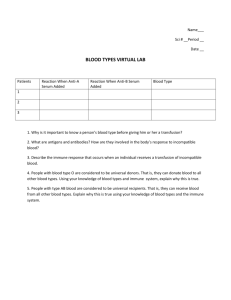
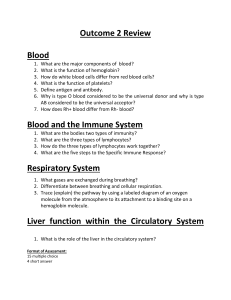
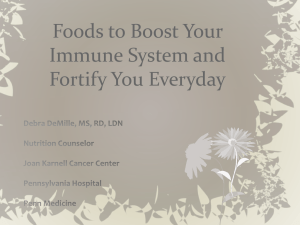
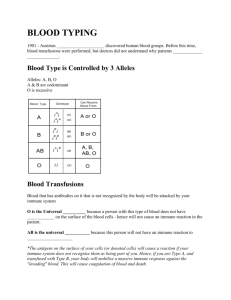
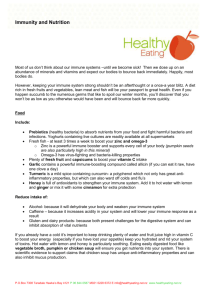
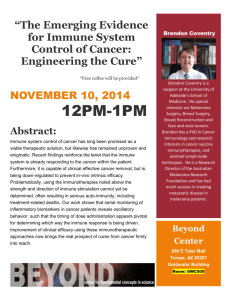
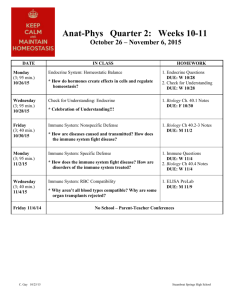
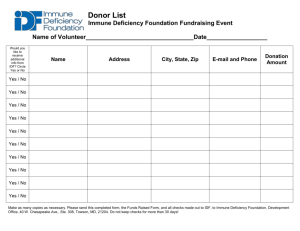
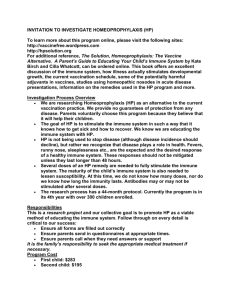
![Early immune system exposure linked to chronic disease[1]](http://s3.studylib.net/store/data/007014068_1-a55ba8d48625efeb17f49a28d1617f27-300x300.png)
